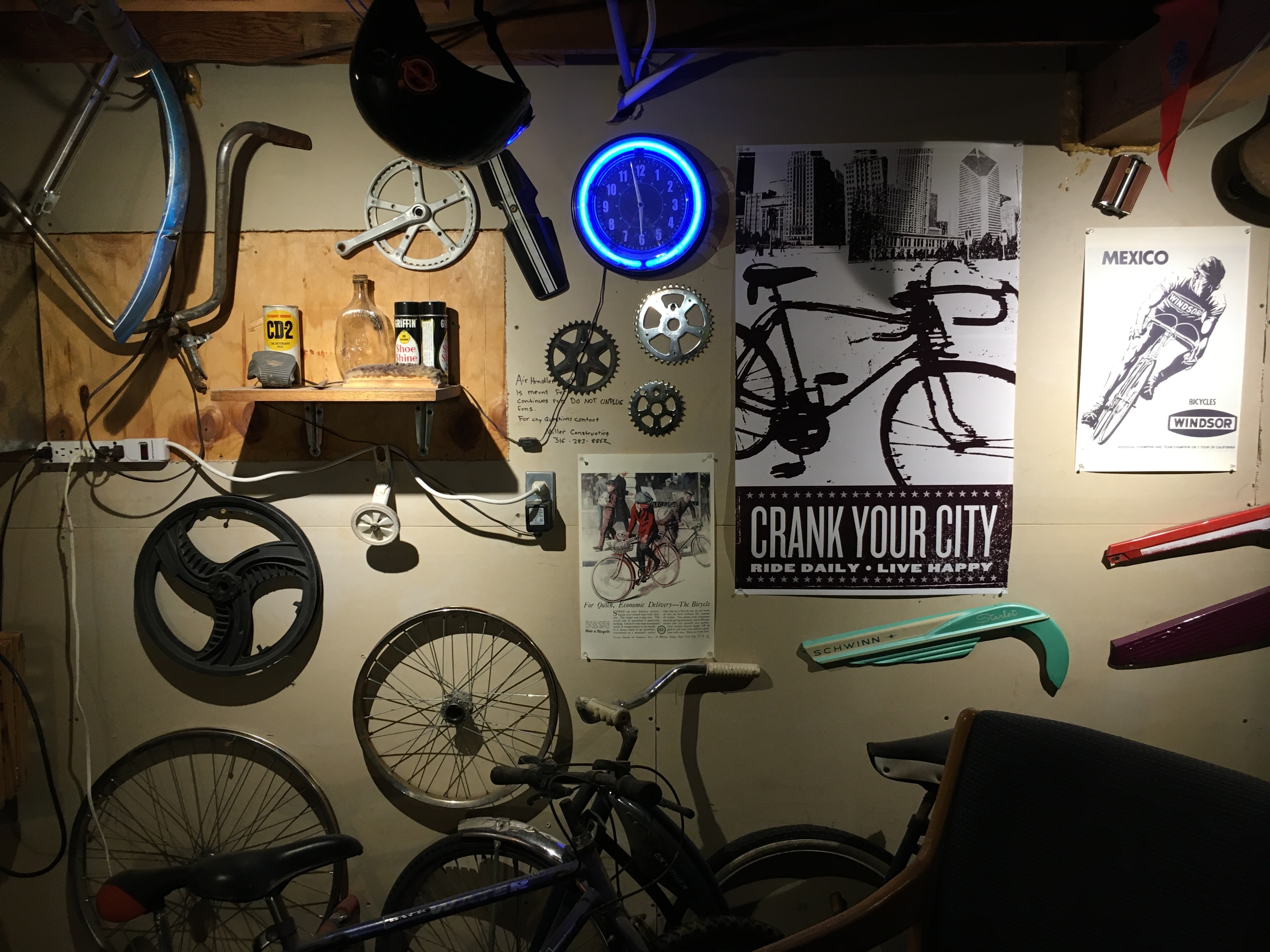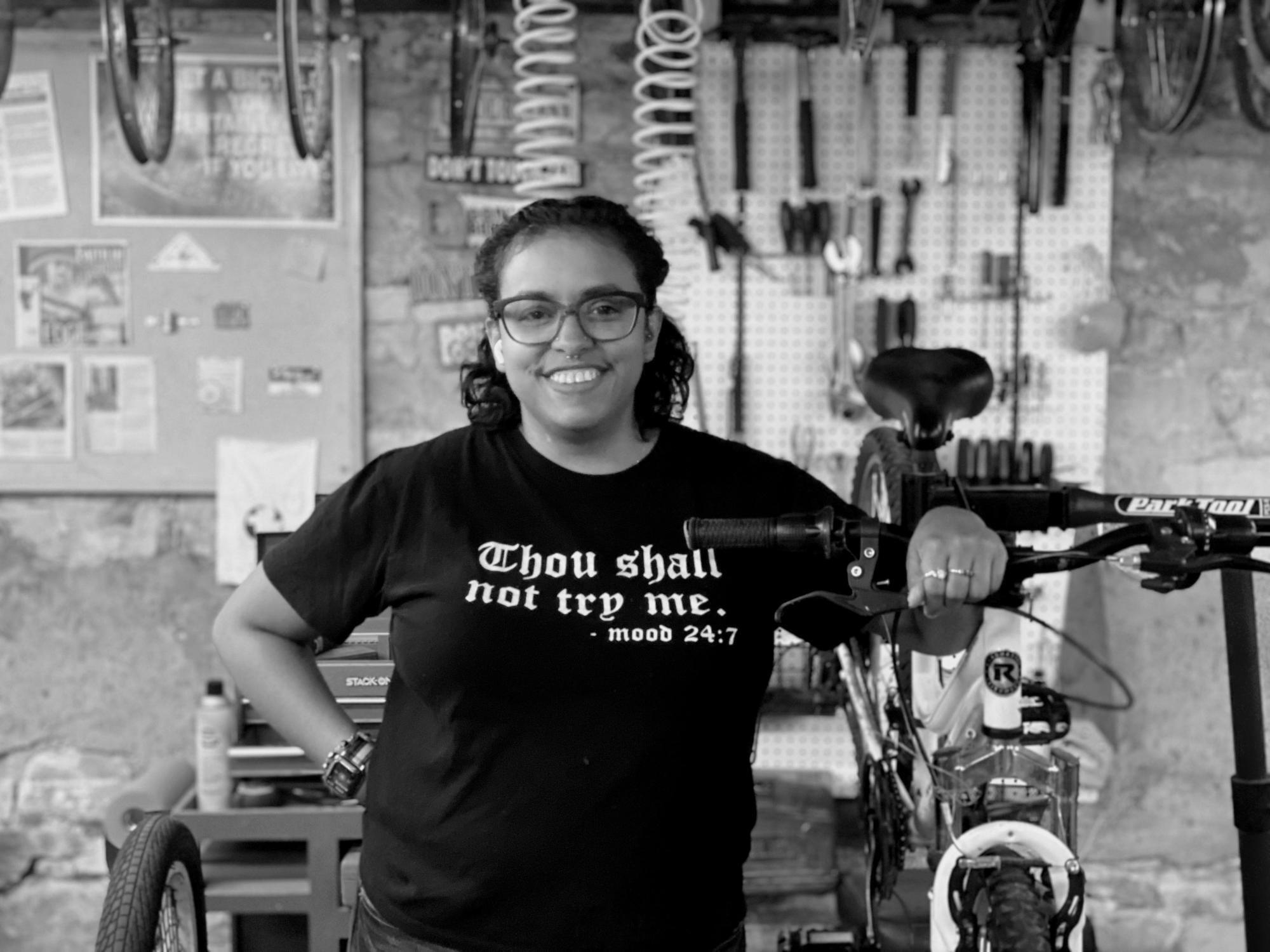'A bike can change somebody’s life'
Thrift shop volunteers fix, donate, sell bikes for those in need

Volunteers at an MCC thrift shop in Newton, Kansas, are refurbishing old bikes to help provide a free or affordable mode of transportation for people in the community.
Much like other departments at the Newton Et Cetera Thrift Shop that accept donations, the bike program accepts used bikes. Since many of the bikes need to be repaired, volunteers fix them before pricing them for sale.
Some are earmarked to be donated back into the community.
Yericka Aviles manages the bike program at the thrift shop, in addition to other departments. She says the program is empowering for those who make use of it.

“The bike program really enables people to be able to do more than get to and from places. It helps them keep a job; it helps them get food for their families,” she said.
“It empowers them and gives them an independence that otherwise they have lost because of life circumstances,” she said.
Aviles sees the impact of the program every day.
Some of the refurbished bikes are donated to the local homeless shelter, drug rehabilitation center and mental health clinic.
The rest are sold at an affordable price in the thrift shop, and all the proceeds go back into MCC’s programming locally and around the world.
"A bike can change somebody’s life. I’ve seen it many times in Newton.”
- Yericka Aviles
The bike program wasn’t always based out of the thrift shop.
Since the early 2000s, Jeremy Ewy has been helping community members by fixing their bikes or refurbishing bikes donated for people who need it, but for most of that time, he was doing it out of his Newton house.
It all started when Ewy’s neighbor Julian Hulie walked his bike by Ewy’s house.
Hulie, who had a developmental disability, wasn’t able to drive and always rode a bike. On this day, though, something was wrong with his bike tire and Hulie asked Ewy for help.
“I thought, I can fix that in five minutes. I’m a mechanic and I’ve worked with my hands my entire life … I routinely work on things far more complicated than a bike tire,” Ewy said.
Together they drove to pick up a new inner tube. Hulie went on his way and thanked Ewy for his help.
The next day, Hulie biked by and asked Ewy for help again - this time to come to a local day program for people with developmental disabilities to help fix the bikes of a number of Hulie’s friends.
“Over the course of three days, I’d fixed 20 bikes,” Ewy said.
Over the following months and years, people would donate bikes to Ewy, who would fix them up in his backyard and basement and bring them to local charities to donate to people who needed them.
But his program got a bit out of hand, with bike parts and frames littering his family’s home.
That’s where the thrift shop came in handy. It had ample space to store the bikes and parts, plus a well-established network of connections in the community.
Ewy continues to go to the thrift shop regularly to work on the bikes as a volunteer. He keeps summoning the energy to spend hours there a week because of the stories of people who found joy in a bike, or who were able to get out of poverty thanks to a more efficient mode of transportation.
Aviles says so many people benefit from the bike program, especially those who get a bike for free.
“When you’re already down on your luck, and you cannot get to places to rise above these things, it can get really dark for you,” she said.
The bikes that are sold at a low cost in the thrift shop also benefit people who are in need of a helping hand.
Ewy recalls seeing a single mom shopping for clothes for her kids at the Newton Et Cetera shop one day and lingered by the bicycle section.
“She can outfit her whole family with bikes for $25. Well, you couldn’t buy one new bike at Wal-Mart for less than $80.”
Aviles adds: “A bike can change somebody’s life. I’ve seen it many times in Newton.”
Caption for top photo: The bike room in the basement of the Newton Et Cetera Shop. Photo/Jeremy Ewy

